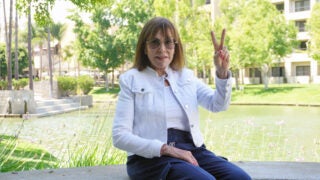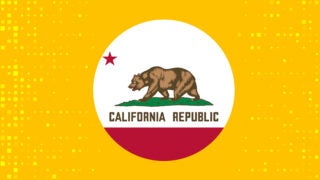President Folt touts USC’s role in a more sustainable and equitable L.A. at annual Business Council summit
Event featuring UCLA Chancellor Gene Block and L.A. Mayor Eric Garcetti examines the city’s clean energy future, water resources and drought, revitalizing buildings with carbon-free power and more.
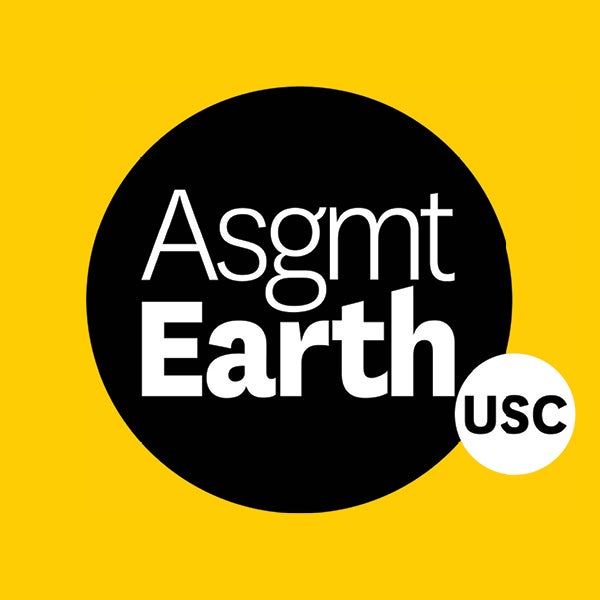 Business and environmental leaders and experts from around the country gathered Thursday morning at USC’s University Park Campus to discuss how education, business practices and policy will shape the future of Los Angeles.
Business and environmental leaders and experts from around the country gathered Thursday morning at USC’s University Park Campus to discuss how education, business practices and policy will shape the future of Los Angeles.
After two years of being held virtually, the Los Angeles Business Council’s Sustainability Summit took place in the university’s Town and Gown ballroom. The 16th annual event addressed topics such as the city’s clean energy future, revitalizing buildings with carbon-free power, water resources and drought, and achieving a new all-electric transportation sector.
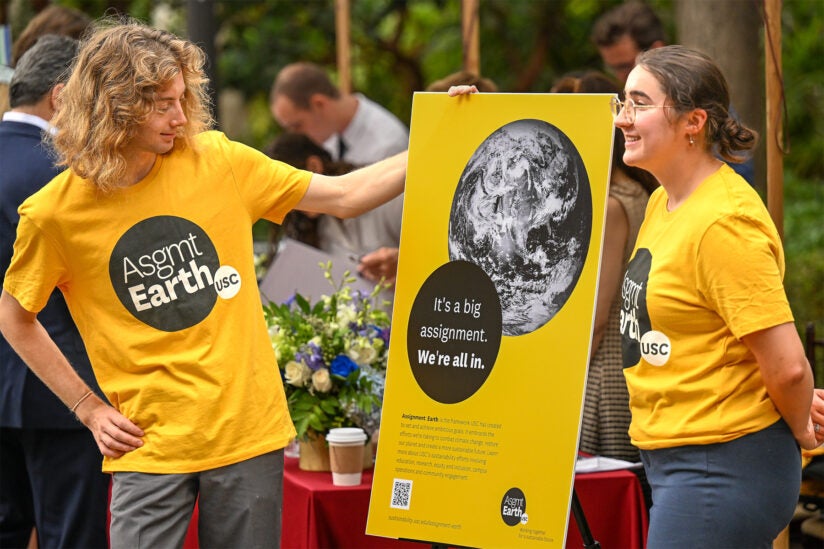
USC President Carol L. Folt noted that creating a greener and more sustainable Los Angeles for all residents is an admirable goal, but to do so, people from all backgrounds need a seat at the table. As a biologist, Folt said that her own mindset had transitioned from thinking about sustainability as a way to preserve beauty in the natural world, to seeing it as a vehicle to create greater equity in society.
“Some of the solutions for sustainability taken in short term or taken from one perspective may look like they are going to leave people out,” Folt said. “One of our biggest jobs is to get people to learn across differences and solve these thorny problems without immediately dividing their attention.”
Sustainability Summit features USC experts
Also representing the university throughout the summit were Alan Arkatov, founding director of the USC Rossier School of Education’s Center for Engagement-Driven Global Education, who moderated a conversation on “Edible Education”; and USC Chief Sustainability Officer Mick Dalrymple, who participated in a panel discussion on carbon-free power in buildings.
Dalrymple highlighted USC’s Assignment: Earth project, an action-oriented plan to guide the university’s commitment to sustainability and addressing climate change between now and the 2028 Olympic Games in L.A.
“We’re one of many anchor institutions in L.A. and in the community, so we have a responsibility to lead, and we have a responsibility to lead by example,” he said.
The city’s leadership was well-represented in a panel featuring Folt, UCLA Chancellor Gene Block and L.A. Mayor Eric Garcetti, who discussed clean technology and the future of the L.A. workforce. The exchange was moderated by Manuel Pastor, USC Distinguished Professor of Sociology and American Studies & Ethnicity, who started by addressing the Inflation Reduction Act. Pastor called the bill, signed into law by President Joe Biden last month, the “single most significant piece of federal legislation around environmental justice,” and emphasized how it benefits disadvantaged communities.
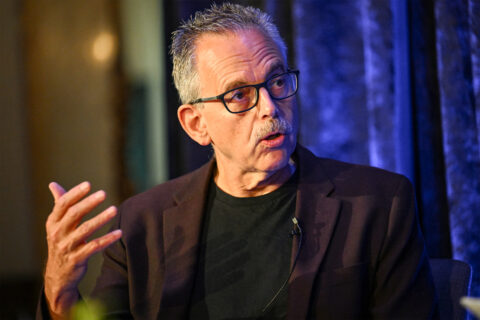
“I’ve been saying all along, how do we make sure that equity is baked in rather than sprinkled on?” Pastor said.
From there, the discussion led into the collaborative effort among USC, UCLA and the other four-year and community colleges in L.A. to train the next generation of the workforce. Folt pointed out how having two leading research universities in a major, forward-thinking city makes for a perfect combination.
“In this city you’ve got two of your largest research universities in America both committed to climate neutrality by 2025,” Folt said. “This is really a big deal — and it is about California, and it is about this region, and it’s about the city helping lead it, so just be really proud of that.”
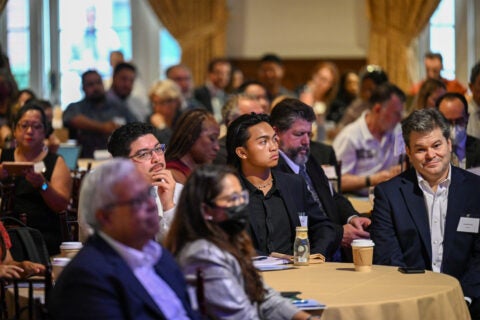
Folt also discussed USC’s sustainability efforts so far and the university’s upcoming goals, including carbon neutrality, increased access to electric vehicles and offering more courses around sustainability in various disciplines.
“We have 22 different professional schools, and we see sustainability as needing to be deeply embedded in every one of them, whether you’re in business or in the arts,” Folt said.
Sustainability Summit: L.A. in 2035
One of the last questions posed to Folt, Garcetti and Block asked what they saw when they envisioned L.A. in 2035. Folt quoted world-renowned primatologist Jane Goodall: “The real danger to the future is apathy.”
“I think by 2035, apathy is gone,” Folt said. “I hope I wake up to a place where students are not limited in their futures based on where they grew up and what it costs to get there, and we lead the way in training people and giving them access to education at every level, with great respect and a livable life with it.”

